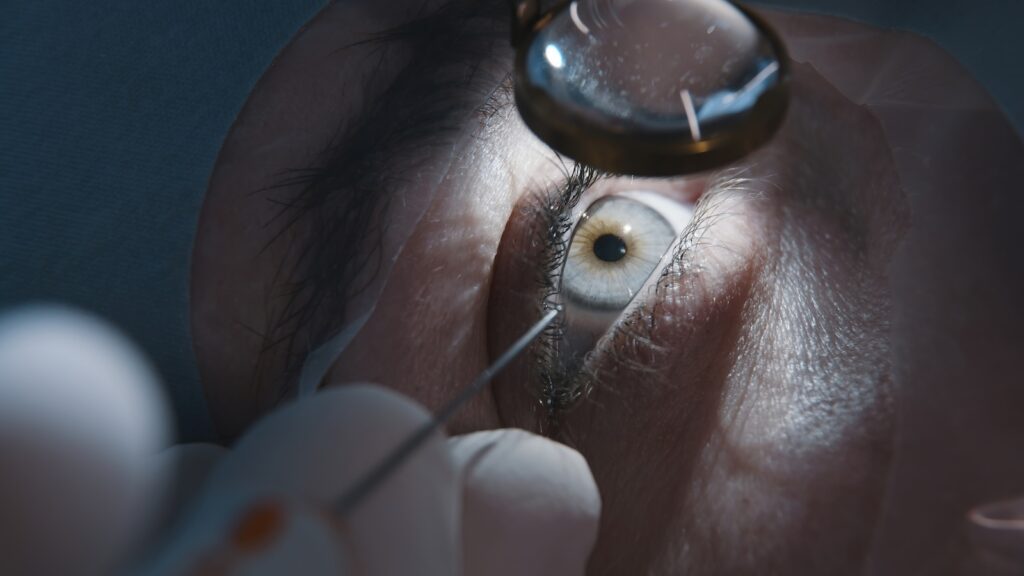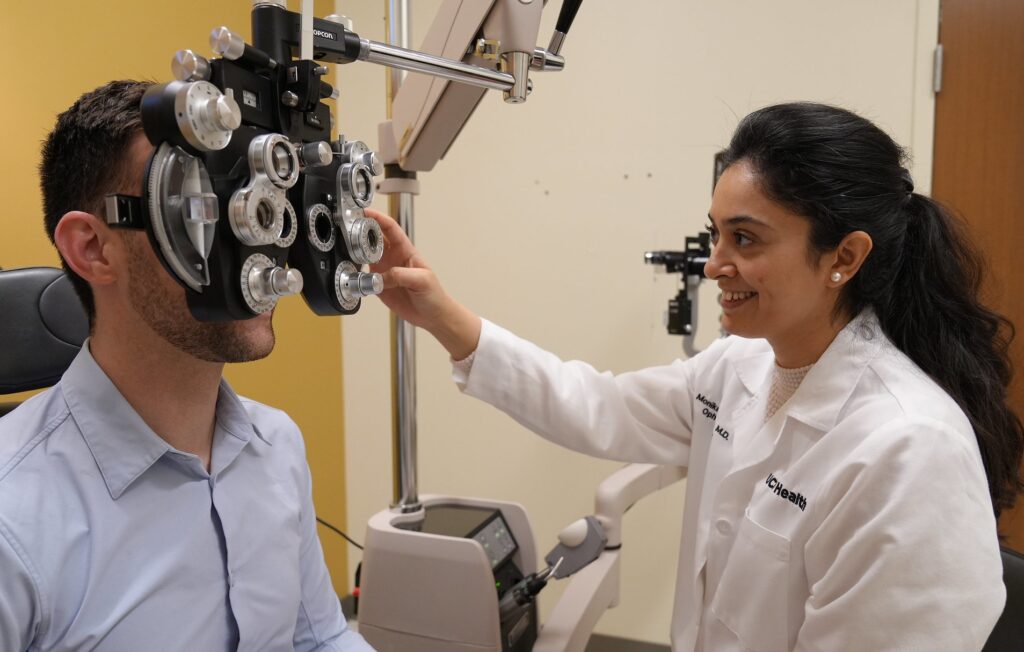Cataracts unfortunately come as you age, and with June being National Cataract Awareness Month, it’s a great time to learn more about this eye condition and its treatment.

Cataracts occur when the eye’s lenses become cloudy over time. They are very common, affecting more than 65 million people worldwide and are a leading cause of vision loss and blindness. Because cataracts occur slowly and worsen over time, you might not notice eye changes at first. But if you are experiencing any of these symptoms, it’s time to have your vision checked:
- Clouded, blurred or dim vision
- Trouble seeing at night – you may notice this especially when driving
- Seeing “halos” around lights
- Fading or yellowing of colors
- Frequent changes in eyeglass or contact lens prescription
Fortunately, cataract surgery offers a permanent solution with a high success rate, few complications and a speedy recovery, says Dr. Monika Farhangi, a board certified ophthalmologist at UCF Heath Faculty Physician Practice and a College of Medicine alumni.

The surgery involves making a small incision on the eye while the patient is under a local anesthetic, then using a small probe to break up the cataract and removing it with suction. Then, a new, clear artificial lens is put in place of the old, cloudy one, restoring the patient’s vision.
“The first day, patients can see the difference,” Dr. Farhangi said. “They say ’The colors are so vibrant, I can read the sign, I don’t see halos and glares anymore,’ and it will continue to get clearer over time. Cataract surgery doesn’t just improve your vision. It’s life changing.”
Patients’ vision generally continues to improve over the following weeks and months after surgery as they adjust to the new lenses.
In addition to their impact on eyesight, cataracts can pose other health concerns, especially for seniors, Dr. Farhangi explained. For example, people with difficulty seeing face an increased risk of falling. They also may isolate and reduce their social engagements. Reduced vision means less sensory information going to the brain. That and isolation are risk factors for dementia.
UCF Health Faculty Physician Practice offers comprehensive cataract and eye care at the clinic’s Lake Nona location. The practice has two ophthalmologists. Dr. Mehul Patel is a board certified ophthalmologist and refractive cataract surgeon who evaluates and manages eye diseases both medically and surgically.
While no surgery is without risk, Drs. Farhangi and Patel say the benefits of cataract surgery far outweigh the risks. And both follow up with patients a day, week and month after surgery to monitor for infection, inflammation or other side effects.
Insurance plans generally cover cataract surgery that is deemed medically necessary, although you should check your plan to see if you will be financially responsible for any charges.
UCF Health Faculty Physician Practice is the clinical practice of the UCF College of Medicine. It provides primary and specialty care at two locations – in East Orlando just blocks from the main UCF campus and in Lake Nona.
Both UCF ophthalmologists are currently accepting new patients for refractive cataract surgery. For more information, please visit https://ucfhealth.com/.